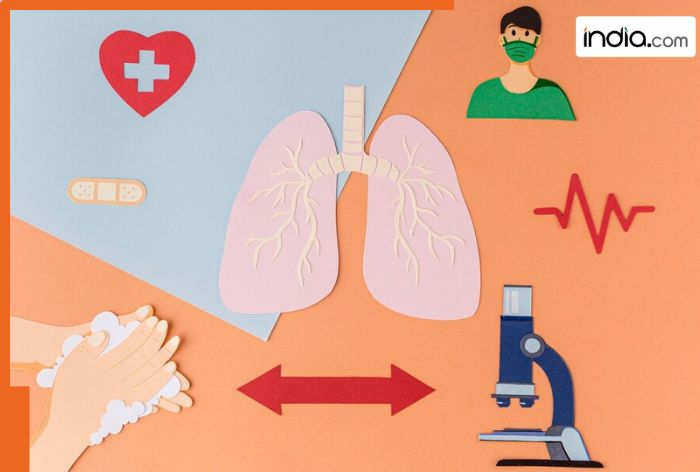Delhi’s AQI is on a sharp decline, causing several health problems. The toxic air we breathe can significantly affect our lungs, cause an itchy throat, and more.
Itchy throat, sore throat, breathing problems, etc. These are common problems that one faces amidst air pollution. Delhi often faces poor air quality, especially during the winter months, resulting in high levels of air pollutants that can harm respiratory health. With air quality index (AQI) frequently reaching dangerous levels, it is essential to take proactive measures to protect the lungs and throat from toxic air.
Six tips to protect your lungs and throat from increasing air toxicity
- Practice breathing exercises: Breathing exercises can help strengthen your lungs and improve their function. Techniques such as diaphragmatic breathing or pursed-lip breathing can improve lung capacity and efficiency. Incorporating these exercises into your daily routine can help mitigate the impact of poor air quality on your respiratory health.
- Stay indoors during peak pollution hours: Air quality tends to be worst during the early morning and late evening hours. To minimize exposure, try to stay indoors during these times of peak contamination. If you need to go outside, plan your activities for times when the air quality is slightly better, usually in the afternoon. Keep windows and doors closed to prevent outside air from entering your home.
- Wear masks when outdoors: When you must venture outdoors, wearing a mask can provide an extra layer of protection against airborne contaminants. N95 or P100 masks are designed to filter out fine particles and can significantly reduce exposure to harmful airborne substances. Make sure the mask fits comfortably around your face for maximum effectiveness.
- Stay Hydrated: Drinking plenty of water helps keep your throat and respiratory system moist, which is essential for optimal lung function. Staying hydrated can also help the body eliminate toxins more effectively. Herbal teas, broths, and warm lemon water can further soothe your throat and provide additional hydration benefits.
- Maintain a healthy wombt: A diet rich in antioxidants can promote lung health and combat the effects of pollution. Incorporate plenty of fruits and vegetables, especially those high in vitamins C and E, such as oranges, berries, spinach, and nuts. Omega-3 fatty acids, found in fish and flax seeds, can also reduce inflammation. These nutrient-dense foods can help your body combat oxidative stress caused by air pollution.
- Use air purifiers: Investing in a high-quality air purifier can significantly improve your indoor air quality. Look for purifiers equipped with HEPA filters, which can effectively trap fine particles (PM2.5) and other contaminants. Using an air purifier in your bedroom, living room, or office can help reduce the amount of toxic air you breathe, making a noticeable difference in your respiratory health.
With the persistent problem of poor air quality in Delhi, it is essential to take measures to protect the lungs and throat from toxic air. Prioritizing your respiratory well-being is crucial in these challenging conditions.
